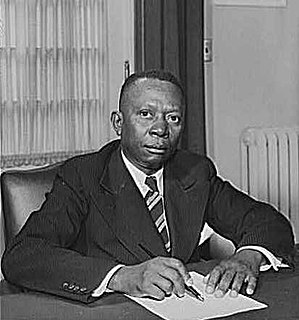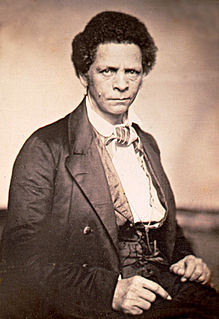
Liberia is a country in West Africa which was founded, established, colonized, and controlled by citizens of the United States and ex-Caribbean slaves as a colony for former African American slaves and their free black descendants. It is one of only two sovereign countries in the world that were started by citizens and ex-Caribbean slaves of a political power as a colony for former slaves of the same political power, the other being Sierra Leone, established by Great Britain. Settlement of former slaves was organised by the American Colonization Society (ACS). The mortality rate of these settlers was the highest in accurately recorded human history. Of the 4,571 emigrants who arrived in Liberia from 1820 to 1843, only 1,819 survived until 1843.

Politics of Liberia takes place in a framework of a presidential representative democratic republic modeled on the government of the United States, whereby the President is the head of state and head of government; unlike the United States, however, Liberia is a unitary state as opposed to a federation and has a pluriform multi-party system rather than the two-party system that characterizes US politics. Executive power is exercised by the government. Legislative power is vested in both the government and the two chambers of the legislature.

The President of the Republic of Liberia is the head of state and government of Liberia. The president serves as the leader of the executive branch and as commander-in-chief of the Armed Forces of Liberia.

William Vacanarat Shadrach Tubman was a Liberian politician. He was the 19th President of Liberia, serving from his election in 1944 until his death in 1971.

George Tawlon Manneh Oppong Ousman Weah is a Liberian politician and former professional football player currently serving as the 25th President of Liberia, in office since 2018. Prior to his election to the presidency, Weah served as Senator from Montserrado County. During his football career, he played as a striker. His prolific 18-year professional playing career ended in 2003.
The First Liberian Civil War was an internal conflict in Liberia from 1989 until 1997. The conflict killed about 250,000 people and eventually led to the involvement of the Economic Community of West African States (ECOWAS) and of the United Nations. The peace did not last long, and in 1999 the Second Liberian Civil War broke out.

The 1997 Liberian general election was held on 19 July 1997 as part of the 1996 peace agreement ending the First Liberian Civil War. The presidency, as well as all seats in the House of Representatives and the Senate were up for election. Voter turnout was around 89%. Former rebel leader Charles Taylor and his National Patriotic Party (NPP) won the election by a substantial margin; Taylor won 75.3% of the vote in the presidential election, whilst the NPP won the same number of votes in the parliamentary election. Taylor was inaugurated as president on 2 August 1997.

Ellen Johnson Sirleaf is a Liberian politician who served as the 24th President of Liberia from 2006 to 2018. Sirleaf was the first elected female head of state in Africa.

The Legislature of Liberia is the bicameral legislature of the government of Liberia. It consists of a Senate – the upper house, and a House of Representatives – the lower house, modeled after the United States Congress. Sessions are held at the Capitol Building in Monrovia. Legislature of Liberia is considered one of the three branches of government based on the Article III of the Constitution of Liberia that stipulates all three branches ought to be equal and coordinated based on the Principle of checks and balances.

General elections were held for the first time in newly independent Liberia on 27 September 1847, alongside a constitutional referendum. The result was a victory for Governor Joseph Jenkins Roberts of the Pro-Administration Party, who defeated Samuel Benedict of the Anti-Administration Party. In a separate vote, Nathaniel Brander was elected Vice President.

General elections were held in Liberia on 1 May 1849, alongside a constitutional referendum. The result was a victory for incumbent President Joseph Jenkins Roberts.

Presidential elections were held in Liberia in 1851. The result was a victory for incumbent President Joseph Jenkins Roberts.

Presidential elections were held in Liberia in 1853. The result was a victory for incumbent President Joseph Jenkins Roberts.

Presidential elections were held in Liberia in 1855. The result was a victory for Vice-President Stephen Allen Benson, who defeated the incumbent Joseph Jenkins Roberts. Benson took office as the country's second president on 7 January 1856.

Presidential elections were held in Liberia in May 1873. The result was a victory for incumbent President Joseph Jenkins Roberts of the Republican Party.
Nathaniel Brander (1796-?) was an American-Liberian politician and jurist who served as the first Vice President of Liberia (1848-1850), under President Joseph Jenkins Roberts.

Gbehzohngar Milton Findley is a Liberian Cabinet-Level government official, former President Pro Tempore of the Liberian Senate and a business executive. Findley is the current Minister of Foreign Affairs of the Republic of Liberia in the administration of President George Weah. He is the owner of a coffee and cocoa bean farm and produce packing company in Liberia which exports to Europe. Findley received primary education in Liberia and advanced degrees at Lund University in Sweden and Franklin University in the United States.









